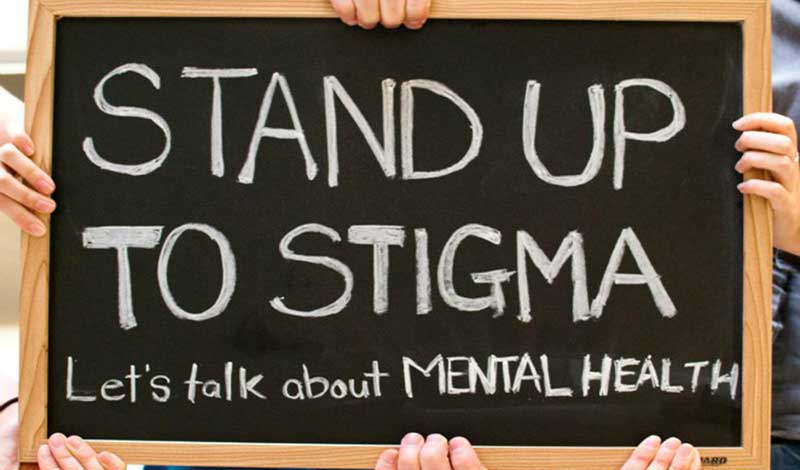When young adults are struggling with mental illness, the last thing they need to deal with is the “stigma” that can be attached. Young adults struggling with depression, anxiety, addiction, or other mental health issues need increasing self-esteem and self-confidence, and should not get bogged down by the shame associated with “stigma”.
If your goal is to help your young adult to live independently, keep reading. At The Crossroads (ATC) is known for our successful approach to guiding young adults between the ages of 18 and 26 toward becoming independent, living and thriving on their own.
Overcoming the Stigma of Mental Illness
Millions of young people forgo mental health treatment each year due to the perceived stigma that is often attached to it, which can lead to devastating consequences [1]. At ATC, we do not focus on the societal definition of mental illness. Instead, we focus on providing young adults with understanding and unconditional acceptance.
At ATC, we have redefined what mental illness means, undermining the misrepresentations that can cause harm. Our clients may be struggling with mental illness or substance abuse, but they only need to be understood and supported with coaching, guidance, and training to become independent young adults – mature, sensible, and able to make good decisions.
The approach we take to the treatment of mental health issues allows our clients to effectively cope with “life on life’s terms”, and become happy, healthy, empowered, and responsible young adults who are accountable to themselves, as well as others. We help this process by undermining the stigma that comes along with mental health issues.
If you listen to the ignorant or misinformed you would think that people who deal with mental illness are crazy, weird, incompetent, or even dangerous. These false labels are the foundation to the stigma associated with mental illness.
In today’s world there are lots of groups of people being judged and mis-labeled with negative terms (stigmatized). Being stigmatized is to be picked on, bullied, shunned, isolated, or treated differently in negative ways because of misguided association to a label.
Stigma: A mark of disgrace associated with a particular circumstance, quality, or person
When stigma happens to someone with mental illness it can be a devastatingly detriment to their attempts to seek professional help or even to admitting that they could benefit from the help. The fear of being stigmatized can lead to denial and therefore professional help is not sought or found.
Stigmatization happens to a lot of folks in society; overweight people are stigmatized, so are short people (Drawfs), as well as minorities, addicts, nerds, autistic people, and a whole list of others. Stigma is the direct result of discrimination and prejudice fueled by ignorance.
Our objective at ATC is to help our clients combat the stigma attached to mental illness by educating them about their mental illness. To think that society will change their view of people with mental illness is not going to happen. But we can change how our clients view themselves.
So, at ATC our goal is to help our clients to be equipped to deal with the stigma, and to better understand who they are and what they are dealing with – and stay strong.
Our approach includes providing authentic knowledge and understanding that undermines the stereotypes and falsehoods our clients might believe about themselves. We do this through unconditional acceptance and love. In addition, our goal is to help our clients to build strong coping strategies in the event they have to deal with societal stigma.
Stigmatization is going to happen – you can bet on it. Therefore, it’s a matter of helping our clients to navigate through stigmatization and stay strong, confident, and assured.
Helpful Videos
Ending the Stigma of Mental Illness
#StrongerThanStigma – Wayne Brady: Why I Waited to Talk About My Depression
Contact At The Crossroads for More Information
It is not unusual for young adults to emerge from residential treatment programs unprepared to either return to their parent’s home or immediately begin living on their own [2]. In many cases, they still need a structured environment that provides constant therapeutic interventions in a group setting, while also addressing their individual needs. Becoming a Successful Young Adult
ATC’s unique “Pathways” system is designed to do just that. While they begin by focusing on their basic needs, higher expectations allow them to advance through the different steps that concentrate on four distinct areas of their life, including independence, healthy living, spiritual awareness, and strengthened relationships.
As our clients progress, they are given increased independence, and their monitoring is gradually reduced until the independent and promising young adult they are capable of becoming emerges.
When they have access to the best treatment available, today’s struggling young adults can become tomorrow’s leaders.
[1] http://www.usatoday.com/story/news/nation/2014/06/25/stigma-of-mental-illness/9875351/ Cost of Not Caring: Stigma set in Stone by Liz Szabo for USA TODAY
[2] http://www.samhsa.gov/samhsaNewsLetter/Volume_22_Number_3/successful_transition/ From Youth to Adulthood: Offering Help. Written by unknown author and published by SAMHSA


Recent Comments